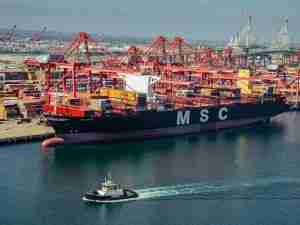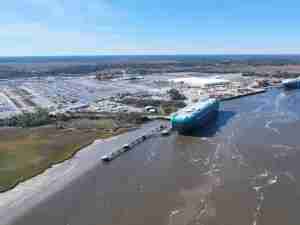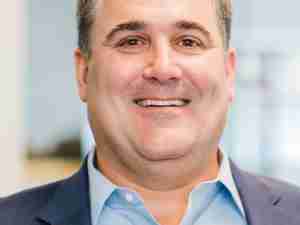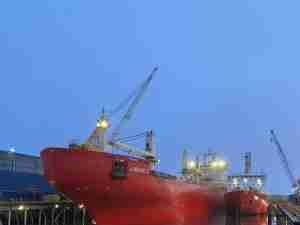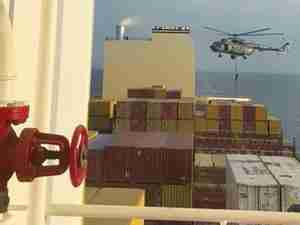Scandinavia-based equipment manufacturer Kalmar Industries hopes the way to the hearts ' and purse strings ' of American port industry decision makers is through America's Heartland.
At the center of Kalmar's US initiative ' and close to the geographic center of the continental United States ' is a factory in the 12,500-resident Kansas town of Ottawa, a name long synonymous with terminal tractors.
In fact, the first terminal tractor ever made was produced at the Ottawa Truck factory in 1958. Now, nearly 50 years later, the 126,000-square-foot plant, after $2 million in recent improvements by current owner Kalmar, is a center for engineering and assembly of Kalmar terminal tractors and, most recently, assembly of all of the firm's medium-capacity forklift trucks. The facility also features a much-expanded parts inventory.
'There is a long-term commitment to be here,' said Leif Wallin, president of Kalmar Americas, who in early 2005 moved to Kansas from his native Sweden. They live about 20 miles North of Ottawa, in the college town of Lawrence, home to the University of Kansas.
Wallin, who has been with Kalmar for nearly seven years, had been in charge of Kalmar's industrial handling equipment and forklift product lines at Ljungby, Sweden, prior to the move to Ottawa, which is 55 miles southwest of Kansas City.
His arrival immediately preceded the Spring 2005 startup of assembly in Kansas of Kalmar's DCE 140-160 model forklifts, with lifting capacities of 30,000 pounds to 36,000 pounds ' units originally produced only in Sweden. The Ottawa plant, in addition to handling terminal tractor assembly for the past half-dozen years, now assembles all the firm's forklifts in the range of 20,000- to 40,000-ton capacities.
Other Kalmar equipment ' including ship-to-shore cranes, rubber-tired gantries, reach stackers, straddle carriers, top picks, Bromma spreaders and the remainder of terminal tractors ' continues to be made in factories in such diverse locations as Sweden, Finland, the Netherlands, Malaysia and China, and is sold in the Americas through three sales companies and a network of 80 dealers.
Kalmar, a unit of Helsinki, Finland-based Cargotec Corp., assumed the Ottawa factory in 1997, as part of its merger with Finnish engine maker Sisu, which had acquired the facility in 1993. Wallin is quick to point out that 'sisu' is an old Finnish expression meaning 'long-term staying power,' which is exactly what Kalmar hopes to have in Kansas.
Wallin is one of several native Swedes working at the Ottawa plant, but most of its 350 employees are from Kansas. Among them is Randy Vance, director of customer support, who 22 years ago went to work as an accountant at Ottawa Truck, two years after graduating from Pittsburg State University in Pittsburg, Kansas.
'We have to prove to the world that we're here, that we're here to stay, that we're here to take care of our product day in and day out,' said Vance, whose duties include overseeing the expanded parts operation at the Ottawa plant. 'If we can't keep the customers happy, we won't get any more customers.'
The enhanced parts inventory, which has seen a $4.5 million investment over the past year, required expanding Ottawa warehouse facilities during this past summer to 34,000 square feet from 26,000 square feet. At the same time, Kalmar's other major US parts facility, in Cranbury, NJ, which serves mostly container handling customers at ports, was doubled in size to 25,000 square feet. Kalmar Americas also has offices in Miami, Tacoma, WA, and a suburb of S'o Paolo, Brazil.
'Overall, we have reinforced our after-market support and service,' Wallin said. 'Normally, European manufacturers are seen as having a good product, but bad support. I think we have overcome that. The after-market is the important part.'
Another move aimed at increasing Kalmar's service presence in the Americas was the March acquisition of Freehold, NJ-based East Coast Cranes and Electrical Contracting Inc., which speciali
